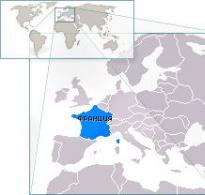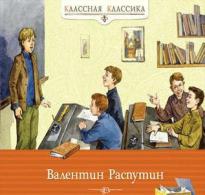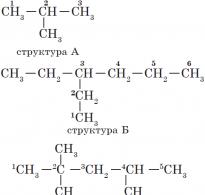Who wrote the story about Ruff Ershovich. See what "The Tale of Ersh Ershovich" is in other dictionaries. In the sea in front of the big fishes, a legend about Ruff, about Ershov's son, about bristles, about the trapper, about a thief, about a robber, about a dashing man, how the fish Bream and Golo competed with him
- "The Tale of Ersh Yershovich", a monument to Russian democratic satire and comic literature of the early 17th century. (4 editions and a rhymed ending of the late 17th century; popular prints; oral retellings); see the section Old Russian literature in the article Russian ... ...
Tale- a broad, vague genre term that does not lend itself to a single definition. In their historical development, both the very term "story" and the material embraced by it have traveled a long historical path; talk about P. as a single genre in ancient and modern ... Literary Encyclopedia
OLD RUSSIAN STORY- ANCIENT RUSSIAN STORY, a genre of ancient Russian literature (XIXVII centuries), combining narrative works of a different nature. Genre indications in the literary monuments of Ancient Russia did not differ in stability: the story was also called ... ... Literary Encyclopedic Dictionary
old Russian story- narrative genre of literature Dr. Russia, represented by original and translated works. In the most ancient period, works of historical themes prevailed among the stories (the famous chronicle of Nestor is called "The Tale of Bygone Years"). ... ... Literary Encyclopedia
Russian literature- I. INTRODUCTION II. RUSSIAN ORAL POETRY A. Periodization of the history of oral poetry B. Development of ancient oral poetry 1. Ancient origins of oral poetry. Oral and poetic creativity of ancient Russia from the 10th to the middle of the 16th century. 2. Oral poetry from the middle of the XVI to the end ... ... Literary Encyclopedia
Folk Russian fairy tales- Folk Russian Tales of A. N. Aөanasyev ... Wikipedia
Russian Soviet Federative Socialist Republic, RSFSR (public education and cultural and educational institutions)- VIII. Public education and cultural and educational institutions = The history of public education on the territory of the RSFSR goes back to ancient times. In Kievan Rus, elementary literacy was widespread among different segments of the population, about which ... ...
Russian Soviet Federative Socialist Republic- RSFSR. I. General Information The RSFSR was formed on October 25 (November 7), 1917. It borders in the northwest on Norway and Finland, in the west on Poland, in the southeast on China, the MPR, and the DPRK, as well as on the union republics that are part of to the USSR: to the west with ... ... Great Soviet Encyclopedia
RUSSIAN LITERATURE. Old Russian literature- Old Russian literature (late XXVII centuries), like other medieval literatures, did not stand out from the totality of other written monuments, which were predominantly “applied” business and cognitive in nature: church ... ... Literary Encyclopedic Dictionary
Tales of Old Russian- Literary works (11th-17th centuries), covering various types of narration. In the literature of Kievan Rus (See Kievan Rus), translated stories with moralizing tendencies and developed plots were widespread (the story of Akira ... ... Great Soviet Encyclopedia
Books
- Russian democratic satire of the 17th century. Moscow, 1954. Publishing House of the Academy of Sciences of the USSR. Publisher's binding. The safety is good. This edition includes works related to the genre of Russian democratic prose of the 17th…
In the sea in front of the big fishes, a legend about Ruff, about Ershov's son, about bristles, about a trapper, about a thief, about a robber, about a dashing man, how the fish Bream and Golovl, a peasant of the Rostov district, competed with him
In the summer of December 7105, on the day it was in the big lake of Rostov, the judges of all cities were gathered, the names of the judges: Beluga Yaroslavskaya, Semga Pereyaslavskaya, the boyar and governor Sturgeon of the Khvalynsky Sea, the roundabout was Som, the big Volsky limit, the court men, Sudok and Pike-trembling.
Residents of Lake Rostov beat with their foreheads, Bream and Golovl, on Ruff on the bristles on the petition. And in their petition it was written: “The orphans of God and your peasant woman, the residents of Rostov Lake, Bream and Golovl, are beating with their foreheads and crying. Complaint, gentlemen, to us against Ruff, against Yershov's son, against the bristle on the snitch, on the thief on the robber, on the snitch on the deceiver, on the dashing, on the cancerous eyes, on the sharp bristles, on the badly unkind person. How, gentlemen, Lake Rostov was conceived, given to us as a patrimony for a century after our fathers, and that Ruff stubble, a snitch, a dashing man, came from his patrimony, from the Volga from the Vetluzhsky estate from Kuzmodemyansky camp, By which river to us in Rostov Lake with his wife and with his children, he was dragged in the winter on willow sledges and became dirty and blackened, that he fed along the volosts in the distant and he was in the Black River, that she fell into the Oka River, against the Dudin Monastery.
And how he came to Rostov Lake and asked us to sleep for one night, and he called himself a peasant. And how he spent one night, and he asked us in the lake for a short time to live and feed. And we believed him and let him live for a while and feed himself with a fiancé and children. And having lived, he had to go to the Volga, and he had to fatten in the Oka River. And that thief Yersh settled down in our estates in Rostov Lake, but he lived a little farther away from us and bred with children, and he gave his daughter to Vandyshev's son and bred with his tribe, and we, your peasants, were killed and robbed, and kicked out of the patrimony , and they took possession of the lake by violence with their fiancé and children, and they want to starve us to death. Have mercy, gentlemen, give us judgment and justice on him
And the judges sent the bailiff Okun to Ruff on the bristles, ordered to put it. And the defendant Ruff was put before the judges at the trial. And the court went, and at the court they asked Ruff:
Ruff your bristles, answer, did you beat those people and the lake and take possession of their patrimony?
And the defendant Ersh said before the judges: “My Lords judges, I answer them, and I will seek my disgrace against them, and they called me a bad man, but I didn’t beat them or rob them, and I don’t know, I don’t know. And that Rostov lake is direct mine, and not theirs, from the old days my grandfather Ruff Rostov tenant. And by birth, I am the oldest person, the boyar kid, petty boyars, nicknamed the Vandyshevs, Pereslavtsy. And those people, Bream and Golovl, were my father's servants. Yes, after, gentlemen, my father’s tongue, not even though it was a sin for his soul, let them go free and with wives and children, and in freedom they live for me in Christianity, and I have another tribe and none in my serfs in yard. And how, gentlemen, that lake dried up in previous summers and there was a shortage of grain in that lake and great hunger, and that Bream and Golovl themselves dragged to the Volga River and spilled over the backwaters. And now, poor thing, they sell me in vain. And if they lived in Lake Rostov, and they never gave me light, they walk on top of the water. And I, the Lord, by God's mercy and father's blessing and mother's prayer do not slander, neither a thief, nor a thief, nor a robber, but they did not take out anything superfluous from me, I live by my strength and fatherly truth, and they did not come to me after me and no slander didn't pay. I am a kind person, princes and boyars and boyar children know me in Moscow, and the heads of archers, and clerks and clerks, and trading guests, and zemstvo people, and the whole world in many people and cities, and they eat me in the ear with pepper and saffron and with vinegar, and in all sorts of patterns, but put me honestly in front of you on dishes, and many people justify me with a hangover.
And the judges asked Bream and his comrades: “What else do you convict Ruff with?”
And Bream said: "We convict with God's truth and the kiss of the cross and you, the righteous judges."
“Yes, in addition to kissing the cross, does the sky, Ruff, have any letter for that Rostov lake, or what data or fortresses, what should not be?”. And Bream said: “We have lost our routes and data, but moreover, everyone knows that that lake is our Rostov, and not Ershevo. And how he, Ersh, took possession of that lake strongly, and everyone knows that that Ersh is a dashing man and a snitch and owns our patrimony by his violence.
And Leshch and his comrade sent: “Let us send, gentlemen, from the guilty, to a good man, and he lives in the Novgorod district in the Volga River, and his name is fish Loduga, but to another good man, and he lives near the New City in the river, his name is Sig. We rush, our gentlemen, that that lake of Rostov is ours from the old days, and not Ershovo.
And the judges asked Ruff the bristle: “Ruff the bristle, are you sending the general truth to Leshchev?” And Ersh told them: “Lord, righteous judges, Bream and his comrades are subsistence people, and I’m not a rich man, and I don’t have a congress for your parcel people and belongings, according to the parcel to start. And those people are far away, I send to them in obedience, that they are rich people, but live on the road. And they carry bread and salt with those people.”
And Bream and his friend: “We are going, gentlemen, from a guilty person for good, but he lives in Lake Pereslavl, and his name is Herring fish.”
And Ruff spoke thus: “My Lord judges, Bream Sigu and Loduga and Herring in the tribe, lending among themselves, and they will cover the Bream.”
And the judges asked Ruff: “Ruff the bristles, tell us why those people are enemies to you, but do you live far from them?” And Ruff spoke like this: “We have never had friendship and hostility with Sig and Loduga and Seldia, but I don’t dare to turn to them, because the journey is long, and there’s nothing to pay for the ride, and behold Bream he is with them in the tribe.”
And the judges asked and sentenced Okun to the bailiff to go after those third ones, whom they sent in obedience to the common truth, and put them before the judges. And the bailiff Okun rode in truth and took with him the witnesses of Me. And Men refused him: “What are you, brother, you want to take me, but I’m not useful to you as witnesses - my belly is large, I can’t walk, and behold my eyes are small, I can’t see far, and behold my lips are thick, I don't know how to speak in front of good people.
And the bailiff Okun let me go free and took the Ide and the Saber and the small Molya with a handful as witnesses and put the truth before the judges.
And the judges asked Seldi da Loduga and Sig: “Tell me, what do you know between Bream and Ruff, whose old Rostov Lake was?”
And the third said the truth: “That is the lake from the old times Leshchevo and Golovlevo.” And they were corrected. “Gentlemen, good people, and they are God’s peasants, but they feed on their own strength, and that Ruff bristle is a dashing person, a slanderer of trouble, a deceiver, a thief, a thief, a thief, but lives along the rivers and lakes at the bottom, and the light is not enough for him , he is such that the snake from under the bush to look. And that Ruff, coming out of the river at the mouth, but deceiving the big fish into the nets, and he himself will turn out, like a demon. And where does he want to spend his time, and he wants the owner to survive. And how that misfortune multiplied, and he wanted to sit down as a votchinnik, but he sold many people with his snitching and let them go from house to house, and he blew his nose at other people; and Rostov Lake Leshchevo, not Ershovo.
And the judges asked Yersh: “Tell me, Yersh, do you have ways and data on that Rostov Lake, and what fortresses?” And Ersh said this: “Lord, I tell you, I had ways and data and all sorts of fortresses on that Rostov lake. And it’s a sin for my sake in the past, my lords, that Rostov Lake burned from Ylyin’s days and until Semyon’s days of summer, and there was nothing to build at that time, because the old straw stuck, and the new straw did not ripen at that time. My paths and data burned down.
And the judges asked: “Tell me about Ruff, he called himself a kind person, so that the princes and boyars, and the nobles and boyar children, and clerks and clerks, and guests and service people, and zemstvo elders, know that he is a kind person, by birth the son of the boyar Vandyshevs, Pereslavtsy.
And we, gentlemen, the sides, will tell the truth about it. Ruff is known in Moscow by hawkers and pebbles and all sorts of people who will not come down to buy good fish, and he will buy ruffs for half the money, take a lot to eat, and moreover, spit out bread, and get the dogs out the window or throw it on the roof. And from the old days, the Vandyshevs, Pereslavtsy will say, but they don’t have any fishing, besides the swindle and slander that the village lackeys have. Yes, tea, the voivode and sturgeon of the Khvalynsk Sea and Som with a big mustache know that he, Ersh, is an age-old deceiver and a deceiver and a driven thief.
And the judges asked Sturgeon: “Sturgeon, tell us about Ruff, what do you know about nothing?” And Sturgeon, standing up, said: “Really, I won’t listen to you, nothing, but I’ll tell the truth about Ruff. Know Ruff in Moscow princes and boyars and people of all ranks. He’s just a downright thief, but he deceived me, but he wanted to tell you for a long time, yes, really, he didn’t dare to say it in rubbish, but now he happened to say it. And I will also tell you how Ersh deceived me when it was yaz went from the patrimony of his river Kotorost to Rostov Lake, and that Ruff met me at the mouth, let me go to the lake and called me brother. And the language began as a kind person and called him a brother against him. And he asked me: “Brother Sturgeon, are you going far?” And he simply told him that I was going to Rostov Lake to fatten. And Ruff said: “I got hurt, my dear Sturgeon brother, I feel sorry for you, don’t perish in vain, and now you have become not strangers to me. If the yaz went from his patrimony, from the Volga River, the Kotorost River to Rostov Lake, and then the yaz was double you and thicker and wider, and my cheeks were up to the front feather, and my head was like a beer cauldron, and my eyes were like beer bowls, and my bow was an overseas ship, along me was this fathom, and across three fathoms, and my tail was like a boat sail. And I wiped off my sides on the shore and broke my nose, and now you, brother, see for yourself what the tongue has become: there is nothing less than you and my dignity. And I believed him, the thief, and from him, the son of a whore, he returned back, but did not go into the lake, and starved his wife and children to death and disbanded his tribe, and he himself came almost alive, did not reach Nizhne near Novgorod, river and wintered.
And the voivode Som, tired of his unattractive face wide and blown up, began to say: “Really, he is a straight man, he has done more than one evil to me - my brother, Bolshevo Soma, dragged him into a net, and himself, like a demon, into a cell and turned away, and when my brother, the larger Som, was walking up the Volga River, and that Ruff bristles, a call-to-mouth and soulless, met Evo, my brother, and began to talk to him. And at that time, my brother was thrown with a net and from children, and that Ruff began to say: “Are you far away, Uncle Som, do you see?” And my brother simply said: "I see the Volga from the top to the mouth." And that Ruff laughed: “You see farther, Uncle Som, but I see not far, I just see what’s behind your tail.” And in those days, the fishermen dragged my brother and his children to the shore, and he, the thief Ruff bristles, wriggled out of the seine into a small cell, like a demon, and they dragged my brother ashore and with butts and nailed the children, and Ruff jumps and dances , but says: “And so, de Nashevo, Obrosima is hanging around.” Ruff is a led thief."
And the judges asked the truth and sentenced Bream and his friend to give the right diploma. And they gave Bream and comrades Ruff a bristle head.
Trouble comes from trouble, but Ruff did not leave Bream and turned his tail to Bream, and he himself began to say: “If they betrayed me with my head, and you, Bream and comrade, swallow me from the tail.”
And Bream, seeing Yershev's slyness, thought Ruff to swallow from his head, sometimes bony kind, and from his tail he set bristles that fierce horns or arrows cannot be swallowed in any way. And Ruff was released into the wild, and they still began to own Lake Rostov, and Ruff to live with them as a peasant. One, Bream and his friend, took the right letter to Ruff so that there would be no further trouble from now on, and for the theft of Yershevo they ordered to beat him mercilessly with a whip along all the fish ford and along the fish pool.
And the court was judged: the boyar and voivode the Sturgeon of the Khvalynsk Sea, and Catfish with a large mustache, and the Pike-trembling, and right there in the court judged the fish Nelma and Salmon, but the bailiff was Perch, and Yazev’s brother, and the executioner beat Ruff with a whip for his guilt - Kostrash fish. Yes, the court huts were the watchman Men Chernyshev and another Terek, and the witnesses were the elder Sazan Ilmenskaya and Rak Bolotov, and the kisser rewrote the bellies, and the statues of five or six Poduzov Krasnoperykh, yes Forty s ten, and with a handful of finely I pray, yes over those state-owned kissers , which the stomachs of the Ershevs copied in Rozryad, the names of the kissers - Cod Stallions, Konev's brother. And they gave a right letter to Ruff.
And the court clerk wrote the guilt to Ershov as a clerk, and the clerk Rak Glazunov printed the letter, printed with his left claw, and the seal was signed by Sterlet with his nose, and the clerk at the note in the printed floor was Sevryuga Kubenskaya, and the prison guard was Zhuk Dudin.
Source. Izbornik (Collection of works of literature of Ancient Russia). – M.: Artist. lit., 1969. - S.581-588, 777-778 (approx.) - Ser. "Library of World Literature". Preparation of the text "The Tale of Yersh Ershovich" and notes by A.M. Panchenko.
Notes. As a result of the great "troubles" of the beginning of the XVII century. land relations were extremely complicated. Land litigation was the most frequent court case under the first Romanovs. In this situation, the "Tale of Ersh Ershovich" appeared, using the form of a court case. Despite Ruff's obvious wrongness, the story by no means condemns him. Moreover, in later editions this sympathetic attitude is strengthened. Ruff attracts with his courage and enterprise, which distinguishes him favorably from dull, clumsy plaintiffs, judges and witnesses. "The Tale of Ersh Ershovich" is one of the most popular satirical monuments of the 17th century. More than 30 lists of the story are known; it is also adjoined by a rhyming buffoon joke about Ruff. In the XVIII century. Ruff became the hero of popular publications, from where the story turned into a fairy tale.
The text is printed according to the publication: “Russian democratic satire of the 17th century”, M.-L., 1954., pp. 7-13. …tribes…- relatives
... lending ...- lend money
... why are those people enemies to you ...- The litigant could take the witness away if he was able to prove his partiality.
... there is nothing to pay for the ride ...- The plaintiff and the defendant paid in half for the delivery of witnesses.
…corrected…- acquitted
...poor...- bad
...too much...- remainder
... overwhelmed ...- lumbago
... beat him with a whip mercilessly ...- The insolvent defendant was "given head" to the plaintiff.
…status…- property
"The Tale of Ersh Ershovich, son of Shchetinnikov" ("The Tale of Ersh Ershovich Shchetinnikov", "Ruff Ershovich") - Russian satirical story of the late XVI - early XVII century.
Plot
According to the words of Bream and Golovlya, Yorsh and his family “dragged in the winter on willow sledges” “from their patrimony, from the Volga from the Vetluzhsky estate from Kuzmodemyansky camp, Kotorost river” to Lake Rostov, which belonged to the ancestors of Bream and Golovlya from the very beginning. Before that, he "dirty and blackened" while feeding in the Black River, which flows into the Oka against the Dudin Monastery. (In other editions, there are other ways.) Asking the owners to spend the night first, and then live and feed for a short time, Yorsh remained, bred and married his daughter to Vandysh's son. Together with his sons and fiancé, he ousted Bream and Golovlya from their patrimony and took possession of the lake.
"The Tale of Ersh Ershovich" is one of the most popular satirical works of the 17th century. There are 4 main editions in more than 30 copies of the XVII-XIX centuries. Alterations are known: a rhyming buffoon is a joke (fable) of the late 17th century, telling about the capture and eating of Ruff, a popular print of the second half of the 18th century, the story also turned into fairy folklore. According to V. V. Mitrofanova, “the tale of Ruff was established in the oral tradition ... through repeated meetings of storytellers with handwritten texts of different editions.”
Characteristic
The story is written in the form of a court case. It parodies Russian legal proceedings of the 16th-17th centuries, its procedures and language are given with irony. The combination of social characteristics and fish signs in the characters also creates a comic effect; this technique was later used in satirical tales by M. E. Saltykov-Shchedrin. The story is characterized by a play on words.
The story has no social orientation. The author does not condemn Yersh, and the sympathetic attitude towards him is intensified in later editions of the story. Ruff is bold and enterprising, unlike stupid, slow-witted plaintiffs, judges and witnesses. The work is related to the fabulous animal epic, they pointed to the parallels between Ruff and the cunning fox of Russian fairy tales.
Each edition of the story with a common plot, language and artistic organization of the text is completely independent. If in the first edition there is strong imitation of an official document, then in the second edition more attention is paid to the sound of the text (rhythm, rhyme, paronomasia, tautology, etc.)
Editions
Tale
- The Tale of Yersh Ershovich / Preparation of the text and notes by A. M. Panchenko // Izbornik (Collection of works of literature of Ancient Russia). - M.: Fiction, 1969. - S. 581-588, 777-778 (approx.) - (Library of World Literature).
- Russian democratic satire of the 17th century / Preparation of texts, articles and comments by V.P. Adrianov-Peretz. - 2nd ed. - M., 1977. - S. 7-16, 143-147, 168-174.
- The Tale of Ersh Ershovich / Translated by T. A. Ivanova, Yu. S. Sorokin; comments by L. A. Dmitriev, N. V. Ponyrko / Izbornik. - 1986. - S. 318-321, 436-437.
- The Tale of Ersh Ershovich / Ed. text and comm. A. M. Panchenko / Monuments of literature of Ancient Russia: XVII century. - M., 1989. - Book. 2. - S. 176-181, 602-603.
Story
- The Tale of Ersh Ershovich, the son of Shchetinnikov: No.,
"The Tale of Ersh Ershovich"
The topical problem of poverty and wealth brought to life the sharply accusatory satirical "The Tale of Yersh Ershovich" or "In the sea in front of the big fish, the legend of Yersh about Yershov's son, about bristles, about the thief, about the thief, about the robber, about the dashing man, how with him fish competed Bream and Golovl, peasants of the Rostov district.
The story depicts a land dispute over Rostov Lake between Ruff and Leshch. This theme was typical for the 17th century, as there was a massive seizure of land by secular and spiritual feudal lords and a deep ruin of the masses. The story is not a funny joke, but a woeful complaint, reminiscent of the anti-serfdom Lament of Serfs, well-known in the 18th century. Behind the transparent allegory of the story, the desperate situation of the peasants clearly emerges, whom Ruff "killed and robbed and knocked out of the patrimony, and took possession of the lake by violence ... and wants to starve to death." And they “beat with their foreheads and weep” at the thief, robber, snitch Yersh and ask: “Have mercy, gentlemen, give us judgment and justice against him.” Ruff came to Rostov Lake from afar and, posing as a peasant, begged to let him "live and feed himself for a short time." Good people accepted him, but he did not return to his native places, remained in Lake Rostov and began to act outrageously. A clever rogue, he gave his daughter to Vandyshev (small fish, smelt) son, thereby strengthening his tribe and began to rob neighboring fish.
At the trial, Ruff showed great cunning, dexterity and ingenuity, proving his innocence. He threatened Bream and Golovlya that he would “seek his dishonor” on them, which is why they called him a “bad man.” And he, they say, “did not beat and did not rob”, knows and does not know anything. The arrogant liar declared Rostov Lake the patrimony of his grandfather, and Bream and Golovlya were his father's serfs. He said to himself that he was "an older man, a child of boyars, petty boyars, nicknamed the Vandyshev Pereslavtsy." After the death of his father, Ruff, allegedly not wanting to take sin upon his soul, set the serfs free. In a hungry year, he said, Bream and Golovl themselves went to the Volga, and he, "poorly they sell him in vain." Ruff pretended to complain that Bream and Golovl, living in Lake Rostov, never gave him light, as they walked "above the water." He, Ruff, as a righteous man, lives "by God's mercy and father's blessing and mother's prayer", not a thief, not a robber, but a "good" person. As evidence, Ruff referred to the fact that he was known in Moscow by "princes and boyars and boyar children, and the heads of archers ... and the whole world in many people and cities." Ruff boasted that they eat it in the ear "with pepper and saffron, and with vinegar, ... and put garlic in front of them on dishes, and ... straighten the hangover."
The real appearance of Ruff was clearly revealed at the trial. "Witnesses" - the fish Loduga, Sig and Herring showed that Bream and Golovl are "kind people, they feed on their strength, and the lake from the old times Leshchevo and Golovlevo." And Ruff is “a dashing person, a deceiver, a thief, but lives along rivers and lakes at the bottom, like a snake looks from under a bush.” After listening to everyone, the judges “sentenced Bream and his friend to give the right letter. And they gave Bream and comrades Ruff a bristle head. But Ruff slipped away here too. The story ends with the fact that Leshch and Golovl let Ersh go free, took “the right letter so that there would be no further trouble from now on, and for the theft of Yershevo they ordered him to be beaten with a whip mercilessly.”
A fair court verdict in favor of the poor was not typical in the conditions of the 17th century. But after all, this was a democratic story and, like other stories of the century, it expresses the people's dream of the victory of good over evil. The story is distinguished by the great truthfulness of the details of everyday life, the accuracy in the depiction of fish and their habits.
"The Tale of Ersh Ershovich" is one of the wonderful works. In allegorical form, she revealed the complex social conflict between peasants and landowners, showed the disenfranchised position of the “naked and poor”.
In one of the cities of the Rostov district, a trial is underway. Boyar Sturgeon, governor of the Khvalynsk Sea Catfish and the ship's men - Sudak and Pike-trembling are considering a petition for Ruff, which was made up of peasants from the Rostov district, fish Bream and Chub. They accuse Yersh that, having come from the Volga River to Rostov Lake, which from time immemorial was their patrimony, he asked to live with his family, and then he settled down, bred children and drove them, peasants, from the patrimony, having completely taken over their hereditary possession , Rostov lake. Ruff answers the court that he, coming from petty boyars, did not beat or rob anyone, since Lake Rostov has always been his property and belonged to his grandfather, the old Ruff, and Bream and Chub - him, Ruff, accusers - were with his father in serfs.
Ruff, in turn, accuses Bream and Chub: they, ungrateful, forgetting that he set them free and ordered them to live at home, during the famine went to the Volga and settled there along the bays, after which they began to encroach on his head with a petition . Ruff complains to the court that Bream and Chub are themselves thieves and robbers and want to ruin it completely. Ruff concludes his speeches by mentioning acquaintances with great princes, boyars and clerks who eat him, Ruff, and "correct their bellies from a hangover." The plaintiffs, Bream and Chub, in response to the request of the judges, refer to witnesses and ask that they be sent for and heard.
And witnesses show that Bream and Chub are good people, God's peasants, feed on their strength, live on their own patrimony, and Ruff is a tell-tale, dashing person, a thief and a robber, no one can live from him, and he ruined many honest people with his machinations and killed by starvation. Witnesses claim that he is of the lowest and not boyar kind, and as for acquaintance and friendship with princes and boyars, Ruff is impudently lying, because Ruff is well known only to poor people, hawkers and all kinds of taverns who have nothing to buy good fish .
Sturgeon appears last before the judges and tells them about how vilely and treacherously Ruff treated him: he met him, Sturgeon, at the mouth of Lake Rostov, called himself his brother and advised him not to go to the lake, where, as Sturgeon later found out, there is always plentiful feed. The sturgeon believed Ruff, because of which his family almost died of hunger, and he himself fell into a net, where the malicious Ruff had lured him on purpose. The court listens attentively to the plaintiffs, witnesses and the defendant and sentences: Justify Bream and Chub, and accuse Ruff and extradite the plaintiff, Leshch. Ruff is executed by a trade execution and hanged for theft and sneaking on hot days in the sun.
Essay on literature on the topic: Summary The Tale of Ersh Ershovich, the son of Shchetinnikov
Other writings:
- The saga of Gisli, the son of Sour The main events described in the saga are considered historically reliable, they date back to 962-978; vises (poetic stanzas) attributed to Gisli were most likely composed much later. Thorbjorn marries Thor, and they have children: daughter Thordis, the eldest Read More ......
- The Tale of Bygone Years Here are the testimonies of the past years about when the name “Russian Land” was first mentioned and from what the name “Russian Land” comes from and who begins to reign in Kyiv earlier - we will tell a story about this. About the Slavs After the flood and the death of Noah, three of his Read More ......
- The Tale of the Beautiful Li In ancient times, a son, a young man of extraordinary talents, grew up in the family of a noble dignitary. Father was proud of him. It's time to go to the state exams in the capital. The young man drove into Chang'an through the gates of the entertainment district and immediately spotted one Read More ......
- The Tale of Prince Bova In a great state, in a glorious city in Anton, Gvidon lived. He once learned about the beautiful princess Militrisa and wooed her. Militrisa's father gave his consent. Three years later, the young had a son, and they named him Read More ......
- The Tale of Savva Grudtsyn During the Time of Troubles, the merchant Foma Grudtsyn-Usov lived in Veliky Ustyug. Having endured many troubles from the invasion of the Poles, he moved to Kazan - the Poles had not yet reached there. He lived in Kazan with his wife until he reigned Read More ......
- The Tale of the House of Taira There were many princes in the world, all-powerful and cruel, but they were all surpassed by the descendant of an ancient family, Prince Kiyomori Taira, the monk ruler from the Rokuhara estate - about his deeds, about his reign, there is such a rumor that it is truly beyond words. Read More ......
- The Tale of Yeruslan Lazarevich There lived Tsar Kirkous, and he had an uncle Lazar. The son of the prince, Yeruslan Lazarevich, was expelled from the kingdom at the age of ten. His remarkable strength brought only troubles during games with peers: whom he would take by the hand Read More ......
- The Tale of Akir the Wise Akir was an adviser to Sinagrip, the king of the Ador and Naliv land. He was told by God that he would remain childless. Akira had a wife and great wealth, but no heir. He erected altars and began to pray Read More ......





